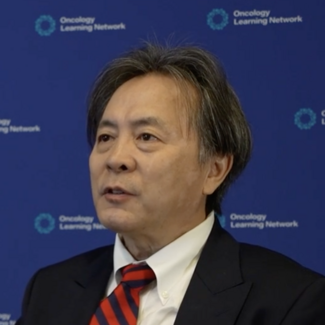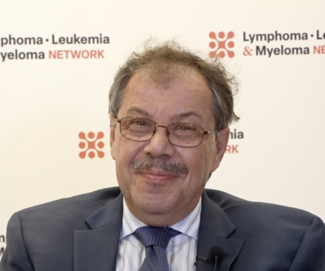Ibrutinib Plus Chemoimmunotherapy Approved by European Commission for Patients With Previously Untreated MCL: TRIANGLE Trial
Ibrutinib therapy in combination with chemoimmunotherapy as a new frontline standard for previously untreated mantle cell lymphoma (MCL) has been approved by the European Commission, based on results from the phase 3 TRIANGLE trial, which showed improved survival outcomes compared with the current standard.
Researchers conducted a randomized, open-label trial to determine the efficacy and safety of ibrutinib for patients with MCL who were previously untreated. The primary end point was failure-free survival (FFS) and secondary end points included overall survival (OS) and safety.
Overall, 870 transplant-eligible patients who were aged 18 to 65 years with previously untreated MCL were included. Patients were randomized to 1 of 3 treatment arms which were chemoimmunotherapy followed by autologous stem cell transplantation (ASCT), chemoimmunotherapy plus ibrutinib followed by ASCT and 2 years of ibrutinib maintenance, or chemoimmunotherapy plus ibrutinib followed by 2 years of ibrutinib maintenance without ASCT.
The median follow-up was 55 months which found the ibrutinib plus chemoimmunotherapy regimen without ASCT had significantly improved 54-month FFS compared with the standard chemoimmunotherapy plus ASCT group (77% vs 68%; hazard ratio [HR], 0.639; 98% confidence interval [CI], 0.428 to 0.953; P = .0068). In the ibrutinib plus chemoimmunotherapy arm, OS was also significantly longer compared to ASCT plus chemoimmunotherapy (88% vs 78%; HR, 0.522; 95% CI, 0.341 to 0.799; P = .0023).
In terms of safety, grade 3 to 5 adverse events occurred in 265 patients treated with ibrutinib plus chemoimmunotherapy and 268 patients treated with ASCT plus chemoimmunotherapy. The rate of blood and lymphatic system disorders was lower in the ibrutinib plus chemoimmunotherapy group than in the ASCT + CIT group (64.9% vs 75.0%), neutrophil count decrease (24.2% vs 23.1%), platelet count decrease (29.3% vs 33.2), and serious infections (28.7% vs 23.1%).
The researchers concluded, “as a targeted therapy, ibrutinib represents an opportunity to improve long term outcomes earlier in the treatment pathway.” They added, “patients now have a new standard of care in first-line treatment that not only offers prolonged survival but also avoids short and long-term toxicities associated with high-dose chemotherapy and autologous stem cell transplant.”
Source:
European Commission approves IMBRUVICA® (ibrutinib) as the first targeted therapy for patients with previously untreated mantle cell lymphoma who would be eligible for autologous stem cell transplant. JNJ.com. Published July 23, 2025. Accessed July 24, 2025. https://www.jnj.com/media-center/press-releases/european-commission-approves-imbruvica-ibrutinib-as-the-first-targeted-therapy-for-patients-with-previously-untreated-mantle-cell-lymphoma-who-would-be-eligible-for-autologous-stem-cell-transplant















